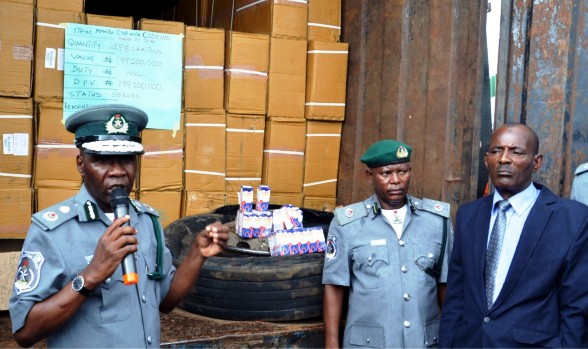Business
Nigeria, Ghana, Others Set For Maritime Pact

The Director General of the Nigerian Maritime Administration and Safety Agency (NIMASA), Dr. Dakuku Peterside has stressed that regional collaboration is key to developing Africa’s maritime sector, stating the Agency’s commitment to continue to reposition the Nigerian maritime sector in order to make it viable and compete favourably with its counterparts in other climes as Nigeria, S/Africa, Ghana and Kenya get set for collaboration.
The DG who made this known in Lagos recently, while receiving a delegation from the Gambian Maritime Administration, led by the Director-General, Mr. Mustapher Maroung said that NIMASA would continue to drive regional collaborations in order for Africa to reap the benefits of the blue economy.
Dr. Dakuku who is also the Chairman of African Maritime Administrations (AAMA) also informed that the upcoming fourth conference of the Association with the theme, “Protecting the African Marine Environment to Support Sustainable Development”, scheduled to hold from 16th -19th of September 2018 in Sharmel Sheikh, Egypt would provide an avenue for African Maritime leaders to chart a way forward for the continent which can be tagged the biggest Island of all the continents.
“We cannot walk this journey alone; partnership is crucial to achieving a robust economy. The beauty of partnership is that everyone brings their expertise to the table where ideas are shared and considered as a way forward to achieving a particular goal; it is not only here in Nigeria, it has become a global trend and this is what AAMA seeks to achieve for the continent,” Dr. Dakuku stated.
Speaking further, Dr. Dakuku noted that the Agency is in discussions with the Maritime Administrations of South Africa, Ghana and Kenya to acquire and jointly operate a training vessel for Cadets. He also noted that discussions are still at the early stages but he is hopeful that such partnership agreement will be beneficial to the countries, adding that the AAMA conference would be an avenue to continue discussions in the proposed agreement.
He stated further that the partnership with the United Arab Emirate on free training of 100 cadets would support the country, noting that the pact provides for the training of 10 cadets per annum spread over 10 years, making it a total number of 100 cadets to be trained in 10 years, contrary to the negative news making the rounds.
The NIMASA DG also used the opportunity to shed more light on the issue of the disbursement of the Cabotage Vessel Financing Fund (CVFF), assuring that in the shortest period of time, the guidelines for the disbursement of the fund will be publicised for qualified shipowners to be duly considered. He however maintained that the power to grant approval for the release of the funds was vested in the Federal Ministry of Transportation.
Earlier in his remarks, the DG of the Gambia Maritime Administration, Mr Mustapher Maroung commended the activities of NIMASA. He said that the Gambian Maritime has come to learn from the Agency and are willing to collaborate with Nigeria for the growth of Africa’s blue economy.
It may be recalled that the NIMASA DG at a Press Conference held in Lagos recently addressed topical issues on the activities of the Agency intended to ensure the growth of the maritime sector, where he assured the public that NIMASA will remain focused on its mandate of ensuring a robust economy.
Nkpemenyie Mcdominic, Lagos
Business
NCDMB, Dangote Refinery Unveil JTC On Deepening Local Content
Business
Food Security: NDDC Pays Counterpart Fund For LIFE-ND Project
Business
Replace Nipa Palms With Mangroove In Ogoni, Group Urges FG, HYPREP
-
Rivers4 days ago
Don Sues For Leadership Assessment Centre In IAUE
-

 Niger Delta4 days ago
Niger Delta4 days agoOborevwori Boosts Digitalisation With Ulesson 500 Tablets To Pupils, Students
-
Business4 days ago
Cassava Flour Initiative Revival Can Up Economy By ?255b – COMAFAS
-
Sports4 days ago
Eagles B Players Admit Pressure For CHAN Qualification
-

 Niger Delta4 days ago
Niger Delta4 days agoDon Highlights On The Potential Of Groundwater As Hidden Wealth For Sustainable Future
-
Rivers4 days ago
Group Seeks Prosecution Of Clergy, Others Over Attempted Murder
-
Opinion4 days ago
Restoring Order, Delivering Good Governance
-
Business4 days ago
CRG Partner JR Farms To Plant 30m Coffee Seedlings

